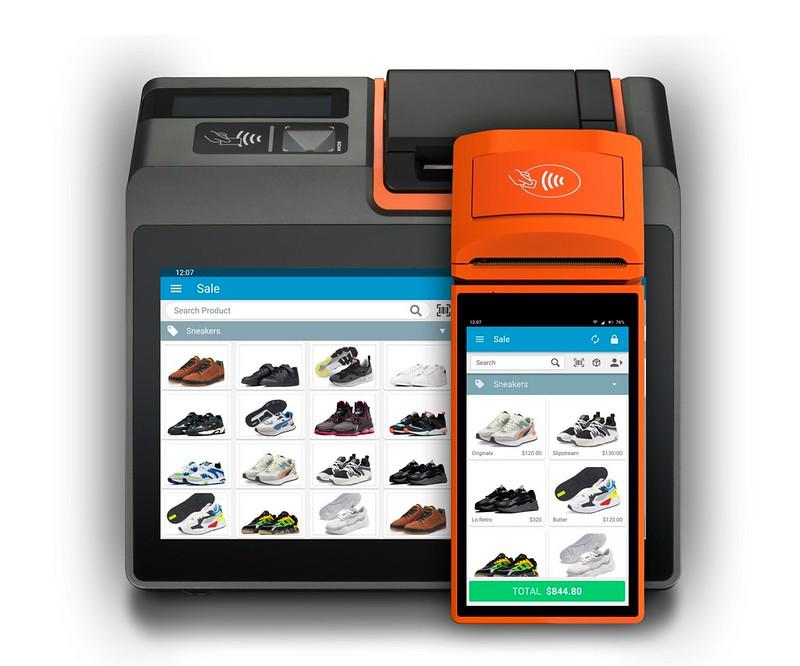
Introduction to POS Systems
In today’s fast-paced retail landscape, point of sale (POS) systems have evolved from simple transaction processing tools to complete business management platforms. By integrating inventory management, customer relationship management (CRM), adn payment processing, a modern POS system can significantly enhance the operational efficiency and profitability of your business. Whether you run a small boutique,a restaurant,or an e-commerce site,understanding the benefits of a POS system can be the key to unlocking your business’s full potential.
Benefits and Practical Tips
Implementing a POS system can have numerous benefits for your business, ranging from streamlined operations to enhanced customer experience. Here are ten surprising benefits of using a POS system:
- Improved Inventory Management: With real-time inventory tracking, you can avoid overstocking or understocking, reducing waste and ensuring that you always have the products your customers want.
- Enhanced Customer Experience: By providing a fast and efficient checkout process, you can improve customer satisfaction, leading to increased loyalty and positive word-of-mouth.
- Streamlined Operations: Automate tasks such as inventory tracking, employee scheduling, and sales reporting to free up more time for strategy and growth.
- Data-Driven Decision Making: Get insights into sales trends,customer behavior,and operational efficiency to make informed decisions about your business.
- increased Security: Protect your business from theft and fraud with advanced security features such as encryption, access controls, and audit trails.
- Integration with Othre Systems: Seamlessly integrate your POS system with other business tools, such as accounting software and e-commerce platforms.
- Customizable Reporting: Generate reports on sales, inventory, and customer behavior to gain a deeper understanding of your business.
- Mobility and Flexibility: Use mobile POS systems to process transactions and manage your business from anywhere, at any time.
- Scalability: Easily scale your POS system as your business grows, adding new features and functionality as needed.
- Cost Savings: Reduce labor costs, minimize waste, and optimize inventory to increase your business’s profitability.
Practical Tips for Implementing a POS System
To get the most out of your POS system, consider the following practical tips:
Choose a system that is user-friendly and easy to learn.
Train your staff thoroughly to ensure thay can use the system efficiently.
Regularly update your system to take advantage of new features and security patches.
Use data analytics to identify areas for betterment and optimize your operations.
Consider implementing a cloud-based POS system for increased mobility and scalability.
Case Studies
Real-world examples of businesses that have successfully implemented POS systems demonstrate the tangible benefits of these systems. As an example:
| Business | Benefit | Outcome |
| — | — | — |
| Retail Store | Improved Inventory Management | 25% reduction in inventory costs |
| Restaurant | Enhanced Customer Experience | 15% increase in customer loyalty |
| E-commerce Site | Streamlined Operations | 30% reduction in order fulfillment time |
these case studies illustrate how a POS system can have a meaningful impact on a business’s bottom line, from reducing costs to increasing revenue.
Frist-Hand Experience
Many business owners have seen first-hand the benefits of implementing a POS system. According to Jane Smith, owner of a boutique clothing store, “Our POS system has been a game-changer for our business. We’ve seen a significant reduction in inventory costs and an increase in customer satisfaction. the system is easy to use and has streamlined our operations, allowing us to focus on growing our business.”
Common Features of Modern POS Systems
Modern POS systems come with a range of features designed to support business operations, including:
Multi-Location Support: Manage multiple locations from a single platform.
Employee Management: Track employee hours, manage schedules, and monitor performance.
Loyalty Programs: Reward loyal customers and encourage repeat business.
Gift Card Management: Sell and redeem gift cards easily.
online Ordering and Delivery: Integrate your POS system with online ordering and delivery platforms.
Choosing the Right POS System
With so many POS systems on the market, choosing the right one for your business can be overwhelming. consider the following factors when selecting a POS system:
Industry-Specific Features: Look for a system that is tailored to your industry’s unique needs.
Scalability: Choose a system that can grow with your business.
User-Friendliness: Select a system that is easy to learn and use.
Integration: Consider a system that integrates with other business tools and platforms.
* Cost: Evaluate the total cost of ownership, including upfront costs, monthly fees, and support costs.
Conclusion
A POS system is a powerful tool that can unlock efficiency, streamline operations, and boost the bottom line of your business.By understanding the benefits and features of modern POS systems, you can make informed decisions about which system is right for your business. Whether you’re a small startup or a large enterprise, a POS system can help you achieve your business goals and stay competitive in today’s fast-paced retail landscape. With the right POS system in place,you can focus on what matters most – growing your business and delighting your customers.



